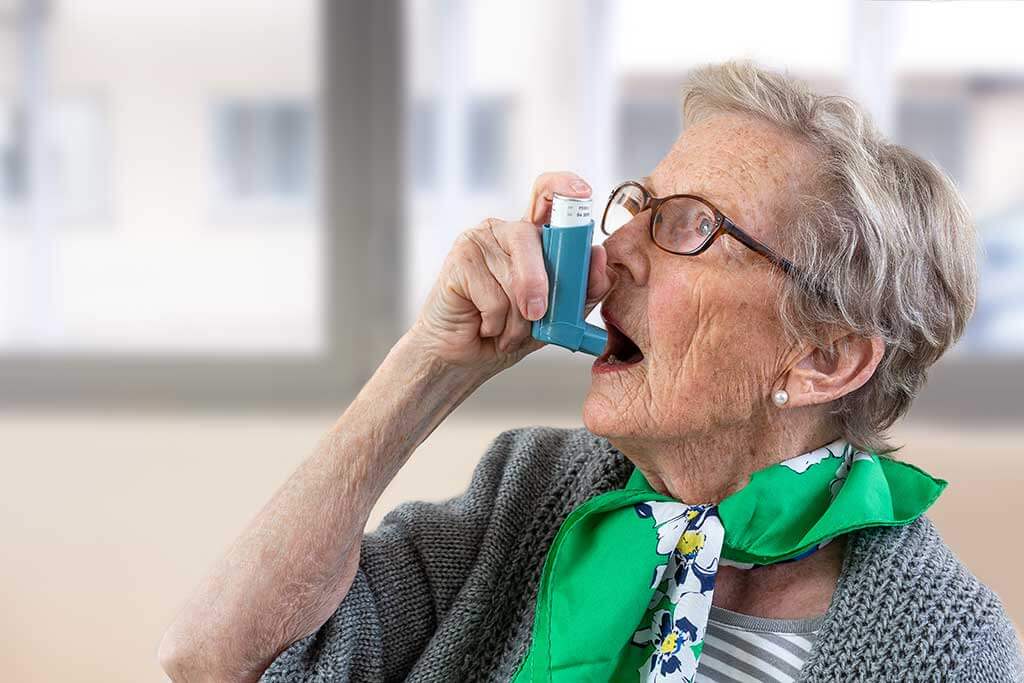Asthma can develop later in life. This is known as late-onset asthma. Late-onset asthma is more common in women and typically starts around menopause. If you or your loved one have a pre-existing asthma condition, you might notice that there are differences in the symptoms as you get older. Side effects from asthma medicines can become more pronounced, and it may take longer to recover over an asthma attack. The good news is that there are plenty of ways to manage asthma in seniors, whether it is late-onset asthma or the development of an existing condition.
Continue to Attend Regular Check-ups
A regular asthma check-up can help you be aware of any changes to your symptoms. With a regular check-up, you can review your asthma medication and make sure that your asthma action plan is up to date. Discussing your developments with your doctor can also help you alleviate any worries that you may have regarding your condition. TerraBella Roswell’s Assisted Living program provides pharmacy coordination, medication management, and an attending on-site physician for your health concerns.
Track Your Symptoms
It is easier to spot any developments in your condition when you keep track of your symptoms. You can write these down in a diary, notebook, or phone and bring it along with you to your check-up. This tracking system ensures that you never overlook any details, as even something small may be significant. Breathlessness is a typically overlooked symptom that should not be ignored, even if it occurs while you are doing activities like climbing the stairs or walking uphill.
Act Quickly if Symptoms Worsen
As we age, asthma attacks can become more severe. They may also take longer to recover from. To cut down on any risks, take action as soon as you notice any worsening in your symptoms. The best thing to do is to create a comprehensive action plan with your doctor so that you or your loved ones will know what to do should your asthma symptoms worsen in any scenario.
Check Your Inhaler Technique
As you age, you may find yourself developing conditions like arthritis, which can complicate your inhaler technique. It’s good practice for everyone to check their inhaler technique regularly, and discuss any concerns that they have with their doctor.
Don’t Ignore Other Conditions
Other conditions that may develop as you or your loved one age can complicate asthma. What is tricky is that many conditions have overlapping symptoms; asthma symptoms can overlap with those of emphysema or chronic bronchitis. Conditions like acid reflux can also intensify asthma symptoms. You or your loved one should discuss with your doctor if it is safe to mix the medications for these various conditions.
Avoid Colds and Flu
These conditions can worsen asthma symptoms. A yearly flu vaccine can help prevent flu. You can lower your risk of getting a cold by staying away from family and friends who you know are ill, and washing your hands frequently.
Managing Your Asthma
Aside from the physical factors, stress, anxiety, and depression can trigger asthma symptoms. A holistic lifestyle change that incorporates healthy habits such as a good diet and regular exercise can help you manage your asthma symptoms. Before implementing any lifestyle changes, however, it is always best to discuss them with your doctor.







